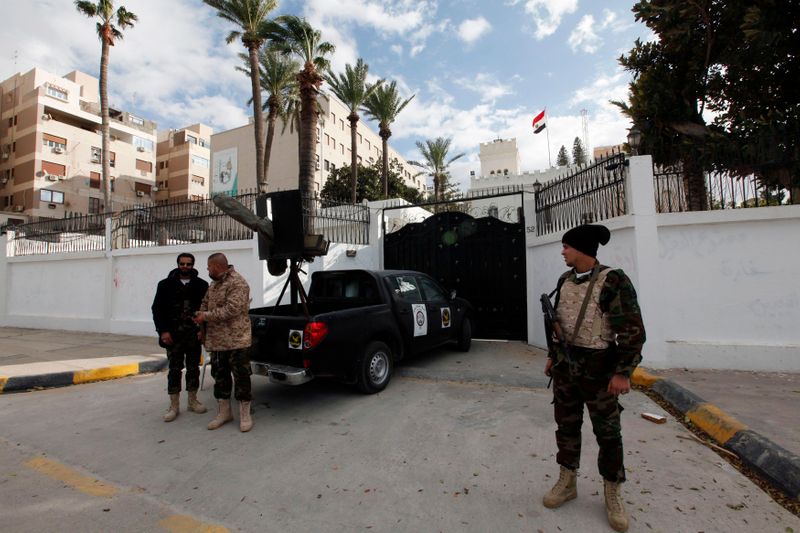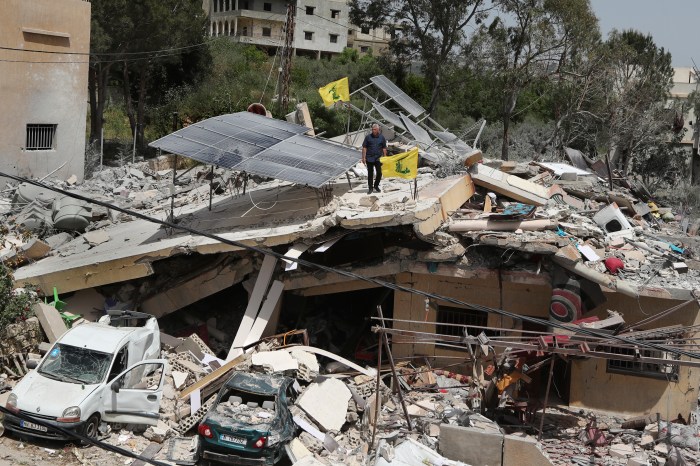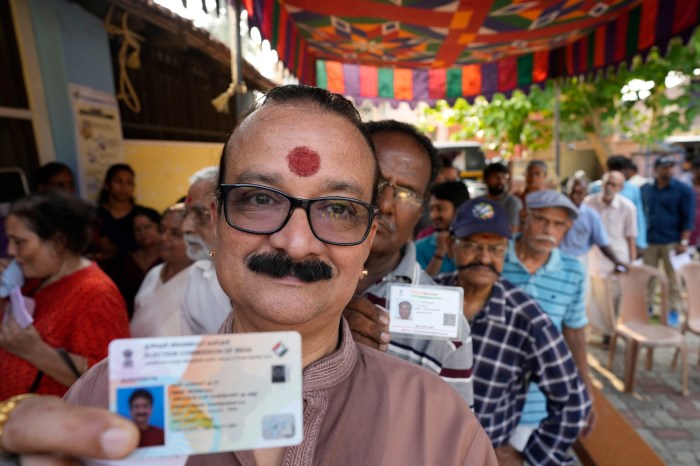CAIRO (Reuters) – Egypt is planning to reopen its embassy in Libya’s capital for the first time in six years, according to Egyptian sources and Libyan officials, marking a shift to a more conciliatory approach to western Libya-based factions.
The planned reopening, which a visiting Egyptian delegation discussed in Tripoli on Monday and Tuesday, coincides with a new interim government set to be formed in the latest U.N.-brokered effort to unite rival camps in east and west Libya.
Egypt has been one of the most prominent backers of eastern-based military commander Khalifa Haftar, whose Libyan National Army (LNA) waged a campaign to take control of Tripoli that crumbled in June last year.
Egypt saw Haftar as the best option for securing its border with Libya. Along with the United Arab Emirates, it also supported his stated goal of opposing Islamist-leaning groups and Muslim Brotherhood influence in Libya.
During its visit to Tripoli the Egyptian delegation met the foreign and interior ministers of the outgoing government, which is aligned with military factions that fought Haftar, according to posts from the Libyan ministries.
The visit discussed logistical arrangements for reestablishing Egypt’s diplomatic presence in the coming period through its embassy in Tripoli and its consulate in the eastern city of Benghazi, an Egyptian diplomatic source said.
The move was a first step towards enhanced political, economic and security cooperation with authorities in Tripoli, two Egyptian intelligence sources said.
Outreach to Tripoli also represents a recalibration of Egypt’s Libya policy after the failure of Haftar’s Tripoli campaign, according to Egyptian intelligence sources and Western diplomats.
Egypt closed its Tripoli embassy in 2014, the year when many foreign missions in the capital shut down during an intensifying conflict that saw rival governments set up in Tripoli and in the east of Libya.
Turkey, a regional rival of Egypt and military backer of west Libyan factions, reopened its embassy in the Libyan capital in 2017.
(Reporting by Ahmed Mohamed Hassan, Aidan Lewis and Tripoli bureau; Editing by Mark Heinrich and Grant McCool)



















